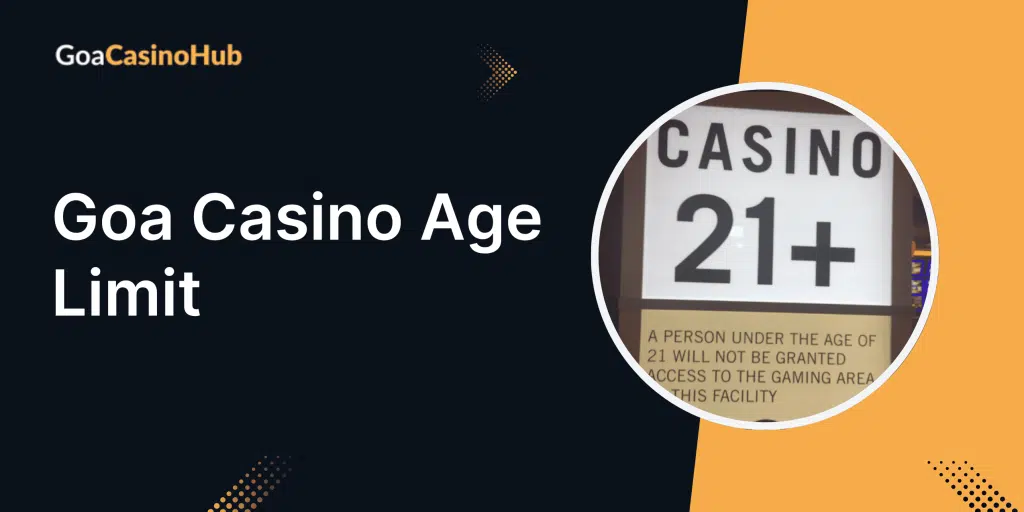Why is gambling legal in Goa when most of India keeps casinos out? The reason goes back to Goa’s different path; once a Portuguese colony, it chose its own way when it came to tourism and economy.
In 1976, Goa made a move that changed everything. By allowing casinos, it aimed to bring in more visitors and give a boost to local businesses, not just rely on beaches and parties.
Today, both onshore Goa casinos and casino cruises in Goa are running strong, with floating casinos on the Mandovi River and luxury hotels in Goa offering electronic games. The rise of casinos in Goa has added a whole new flavour to its tourism.
From legal shifts to casino cruises, here’s how Goa turned gambling into a success, and why it’s still growing.
Legal Framework That Made Casinos Legal in Goa
India’s relationship with gambling presents a fascinating legal paradox, with Goa emerging as a notable exception to the national prohibition.

National Prohibition on Gambling
The Public Gambling Act of 1867 serves as India’s primary legislation against gambling, prohibiting the operation of gambling houses nationwide.
This colonial-era law criminalizes running or even visiting gambling establishments, setting the tone for India’s generally restrictive stance on gambling activities.
Indian State Power
However, Article 245 of the Indian Constitution grants states the power to legislate on subjects within their jurisdiction, including gambling.
This constitutional provision allows states to create laws, potentially overriding central legislation on certain matters.
Goa’s Specific Laws on Gambling
Goa leveraged this constitutional power through the Goa, Daman and Diu Public Gambling Act, 1976. Initially designed to regulate gambling in the then-Union Territory, this act underwent transformative amendments starting in 1992.
These crucial changes allowed:
- Authorization of electronic gaming machines in five-star hotels.
- Permission for table games on offshore vessels.
- Establishment of a licensing system with government oversight.
The Goa Casino Rules, 2002, further solidified the legal framework, detailing licensing procedures, security requirements, and operational standards that casinos must follow.
Why Did Goa Legalize Casinos?
The decision to legalize casinos in Goa wasn’t arbitrary; it was calculated and based on clear economic objectives.

Boosting Tourism With Casinos
Goa’s primary motivation was to enhance its appeal as a year-round tourist destination.
While beaches attract visitors during certain seasons, casinos offer entertainment year-round, helping to stabilize tourism income throughout the year.
This strategy aimed to attract high-spending domestic and international tourists, differentiating Goa from other Indian destinations.
Economic Gains from the Casino Industry
The economic benefits of allowing Casinos to be operated in Goa have been substantial:
- Revenue Generation:
Casinos contribute significantly to state finances through annual license fees ranging from ₹11 crore to ₹44 crore, entry fees, and gaming taxes. In FY 2018-19, the government collected ₹411 crore from casino operations. - Employment Creation:
The industry directly employs over 15,000 people in casinos and creates numerous indirect jobs in hotels, restaurants, and transportation services. - Local Business Support:
Casinos drive business for surrounding establishments, from luxury hotels to local vendors, creating a ripple effect throughout the economy.
How Casinos Operate in Goa Today?
Goa’s casino operations follow a structured system with clear regulations and distinctions.

Understanding how these establishments operate requires examining their types, the rules governing them, and the ongoing discussions surrounding their operations.
The casino industry in Goa operates through a carefully regulated system that balances tourism interests with social concerns, creating a model that’s distinct from anywhere else in India.
Types of Legal Casinos in Goa
Goa hosts two primary types of casinos:
1. Onshore Casinos:
Located exclusively within five-star hotels, these establishments primarily offer electronic gaming machines and slot machines. They provide a more accessible entry point for casual gamers and tourists.
2. Offshore Casinos:
These floating entertainment venues anchored in the Mandovi River offer the full casino experience, including live table games like blackjack, roulette, and poker. Their riverine location adds an exclusive atmosphere to the gaming experience.
Goa Casino Rules & Regulations in 2026
The casino industry operates under strict guidelines:
- Goa Casinos’ Age Limit Is 21+ Years Old.
- Mandatory entry fees.
- Dress codes at certain establishments.
- Regular government oversight and audits.
- Restrictions on local residents’ access (implemented in 2020).
Important distinction: While Goa residents are barred from playing in casinos, they can work in these establishments. This policy aims to protect locals from gambling risks while allowing them to benefit from employment opportunities.
Ongoing Casino Debates and Challenges in Goa
Despite economic success, casinos face several challenges:
- Social concerns about gambling addiction and potential crime.
- Proposals to relocate offshore casinos from the Mandovi River.
- Debates about restricting local access to protect residents.
- Calls for establishing a dedicated Gaming Commissioner.
- Suggestions for creating a designated gaming zone away from city centers.
Top 3 Legal Casinos in Goa To Visit in 2026
With over 15 operational casinos spread across land and water, Goa offers a diverse range of gaming experiences for every type of visitor.
From luxurious offshore vessels to sophisticated hotel-based establishments, each casino brings its unique atmosphere and specialties. These top-rated casinos represent the finest gaming venues Goa has to offer, combining world-class facilities with Indian hospitality.
Ready to try your luck? Here are Goa’s premier casino destinations:
1. Deltin Royale – The Crown Jewel

The crown jewel of Goa’s casinos, Deltin Royale offers a luxurious offshore experience with over 850 gaming positions, multiple restaurants, and live entertainment.
Its grandeur and variety make it the most popular choice among high rollers and tourists. Planning to visit Deltin Royale? Check out the ticket options and pricing before you go.
2. Big Daddy Casino – Asia’s Largest Gaming Destination

Asia’s largest gaming and entertainment destination, Big Daddy Casino features 110 gaming tables and a 200-seat theatre.
Located on the Mandovi River, it combines Vegas-style gaming with Bollywood glamour. Before visiting Big Daddy Casino, take a quick look at the ticket pricing details to plan your experience better.
3. Casino Pride – Vibrant Gaming with Indian Hospitality

Known for its vibrant atmosphere and diverse gaming options, Casino Pride offers both table games and electronic slots.
Its three-deck structure includes dedicated VIP gaming areas and multiple dining venues.
Goa Casino Tips:
Conclusion: Goa Casinos Stay Legal Through State-Controlled Laws
Goa’s casino industry exists not through a loophole but through deliberate legislative action enabled by the Indian Constitution.
The Goa, Daman, and Diu Public Gambling Act of 1976, along with its subsequent amendments, created a legal framework that transformed the state into India’s gaming hub.
This strategic decision has successfully boosted tourism, generated substantial state revenue, and created thousands of jobs.
While debates continue about social impacts, the careful balance of regulation and economic benefit suggests that casinos will remain integral to Goa’s tourism landscape for years to come.
FAQs
Indian citizens from other states can legally gamble in Goa’s casinos. However, Goa residents have been restricted from entering casinos since February 2020.
The minimum age requirement is 21 years. Visitors must carry valid photo identification to prove their age upon entry.
Casino winnings are subject to a 30% tax under Indian tax laws, plus applicable surcharge and cess. Casinos are required to deduct this tax at source for winnings exceeding ₹10,000.
Entry fees grant access to the casino premises and often include complimentary food and beverages. Gaming chips must be purchased separately for actual gambling activities.
Most offshore casinos operate 24/7, while onshore casinos in hotels typically have specific operating hours. It’s best to check with individual establishments for their timings.
Visitors need government-issued photo identification such as a passport, Aadhaar card, driving license, or voter ID card. Foreign nationals should carry their passport.







